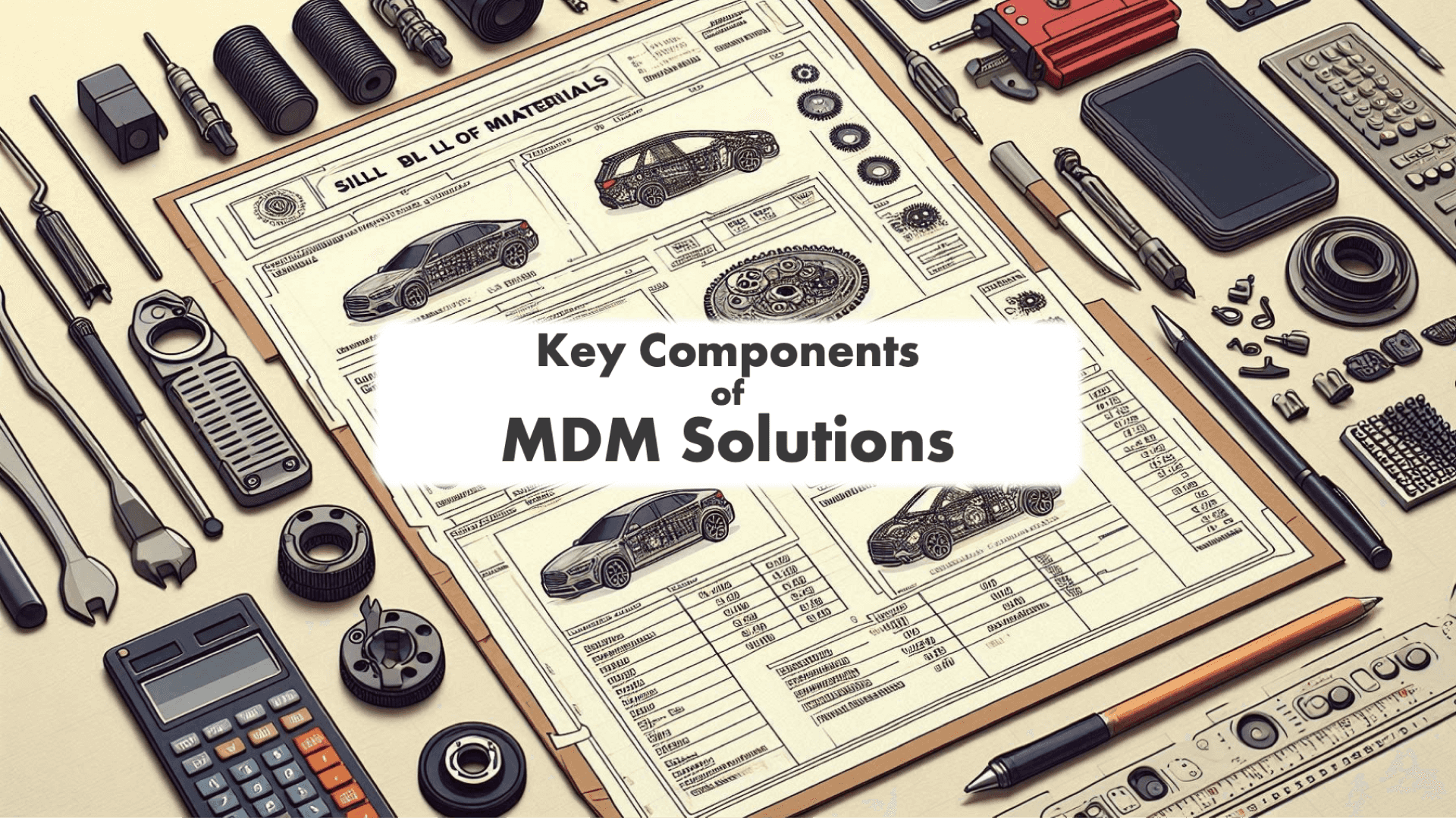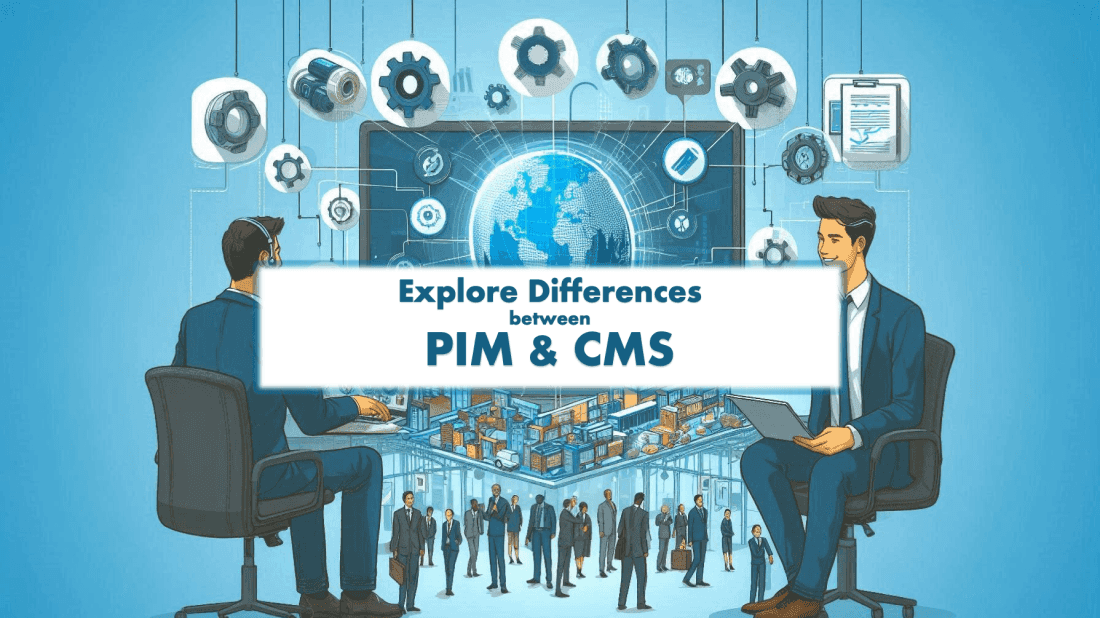Jun 6th, 2024
Top Benefits of implementing PIM in a manufacturing company
Categories:Product Information Management SystemThe manufacturing industry is undergoing a significant transformation with the advent of Industry 4.0, which emphasizes automation and interconnected systems.
Despite these advancements, manufacturers still face challenges in managing vast amounts of product data. This is where a Product Information Management (PIM) system becomes essential. By centralizing and streamlining product data management, PIM systems help manufacturers optimize their operations, improve customer experiences, and drive revenue growth. This article delves into the top benefits of implementing a PIM system in the manufacturing sector.
The Importance of Product Information for Manufacturers
In the digital age, accurate and comprehensive product information is crucial for manufacturers aiming to stay competitive. Traditional methods of managing product data, such as spreadsheets and shared drives, are no longer sufficient. Manufacturers need a robust solution to handle extensive product catalogs and distribute information across multiple channels efficiently. A PIM system provides the tools necessary to manage and distribute product data effectively, ensuring consistency and reliability.
Key Benefits of Implementing a PIM System
-
Streamline Complex Product Data
Manufacturers often handle complex product catalogs with data from various sources, including suppliers and ERP systems. A PIM system centralizes this information, simplifying the management and standardization process. By utilizing a PIM solution, manufacturers can reduce errors and inefficiencies, ensuring smoother product launches and better overall performance. This highlights the importance of using the best product information management software to stay ahead in the competitive market.
-
Ensure Consistency Across All Product Information
With numerous documents and product items to manage, inconsistencies in product information can easily arise. A PIM system ensures that all product data, from images and videos to translations and localizations, remains consistent across all channels. Integrating PIM with a Digital Asset Management (DAM) system further enhances this consistency, providing high-quality visuals and accurate data for an improved customer experience. Cloud-based PIM solutions offer additional flexibility, allowing manufacturers to manage product data from anywhere, enhancing operational efficiency.
-
Centralize All Product Data
Managing product data from multiple sources can be labor-intensive and prone to errors. A PIM system centralizes all product information into a single repository, making it easily accessible and manageable for all departments. This centralization reduces duplication and errors, allowing manufacturers to respond quickly to market demands and maintain a high level of data accuracy. The best product information management system will streamline your data management processes, ensuring that all product data is up-to-date and accurate.
-
Enhance Operational Flexibility
Modern B2B customers expect a seamless omnichannel experience, with easy access to accurate product information. A PIM system enhances operational flexibility by automating data management processes and enabling quick publication of product data across various digital platforms. This automation improves efficiency and allows manufacturers to focus on innovation and creative problem-solving. PIM for manufacturers can significantly boost productivity by reducing manual tasks and streamlining workflows, making it an essential tool for modern manufacturing operations.
-
Boost Revenue and Customer Satisfaction
Accurate and detailed product information is essential for providing a compelling buying experience. Customers are more likely to make purchases when they have access to complete and reliable product data. A PIM system helps manufacturers deliver personalized content, reduce product returns, and enhance brand loyalty. By consolidating product information, manufacturers can create engaging customer experiences and achieve higher ROI. The benefits of PIM extend beyond just data management, as it also plays a crucial role in marketing and sales strategies.
PIM vs ERP: Understanding the Differences
While both PIM and ERP systems are essential for manufacturers, they serve different purposes. PIM focuses on managing and distributing product information, ensuring consistency and accuracy across all channels. On the other hand, ERP systems manage business processes such as inventory, finance, and human resources. Understanding the differences between PIM and ERP can help manufacturers choose the right tools for their specific needs, optimizing their overall business operations.
PIM for Marketing: Enhancing Product Promotion
PIM systems are not only beneficial for managing product data but also play a crucial role in marketing strategies. By providing accurate and consistent product information, PIM systems enable manufacturers to create compelling marketing campaigns that resonate with their target audience. PIM for marketing helps streamline the creation of promotional materials, ensuring that all product data used in marketing efforts is up-to-date and accurate. This can lead to more effective marketing campaigns and increased sales.
Open-Source PIM Software: Cost-Effective Solutions
For manufacturers looking for cost-effective solutions, open-source PIM software offers a viable option. Open-source PIM systems provide the same functionality as proprietary software but at a lower cost. These systems are highly customizable, allowing manufacturers to tailor the PIM solution to their specific needs. By choosing open-source PIM software, manufacturers can reduce costs while still benefiting from the robust features and functionalities of a PIM system.
Enterprise PIM: Scalability for Large Organizations
For large manufacturing organizations, enterprise PIM solutions offer the scalability needed to manage extensive product catalogs and complex data management requirements. Enterprise PIM systems are designed to handle large volumes of product data, making them ideal for manufacturers with extensive product lines. These systems provide advanced features such as automated data synchronization, multi-channel distribution, and robust reporting capabilities, ensuring that all product data is managed efficiently.
Conclusion
Implementing a PIM system offers numerous benefits for manufacturers, including streamlined product data management, improved operational flexibility, and enhanced customer satisfaction. By centralizing and standardizing product information, PIM systems enable manufacturers to meet market demands efficiently and stay competitive in the digital age. Whether aiming to improve data accuracy, increase revenue, or enhance operational efficiency, a PIM system is an indispensable tool for modern manufacturing. Embracing the best PIM solutions and following PIM best practices can significantly enhance your business processes and drive long-term success.
About Neurologik.io
Do you feel like your product team at your company spends way too much time on tedious data administration instead of actual product work?
Neurologik.io streamlines all your product data into one intuitive platform, putting an end to hunting through scattered systems and manually updating information. Our customers cut their data management workload by 80% on average. Imagine what your team could accomplish with all that time saved.
If you’d like to explore how Neurologik.io can massively boost your company’s product team productivity, Contact us for a ProductHub demo today.







